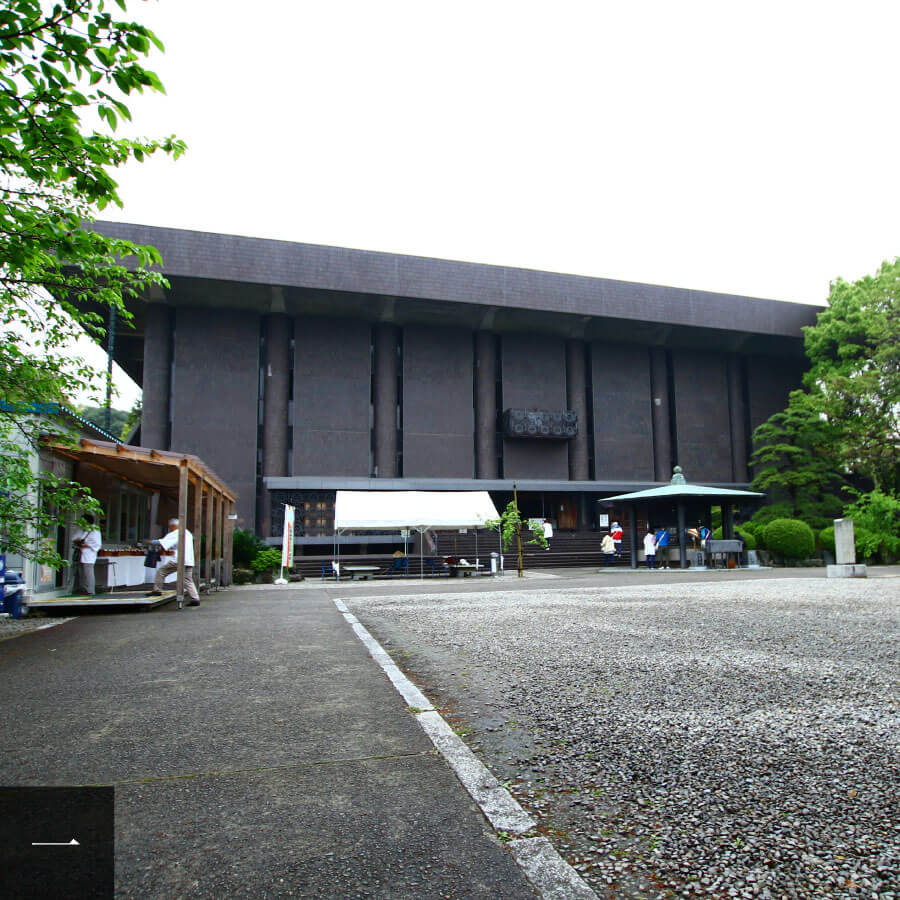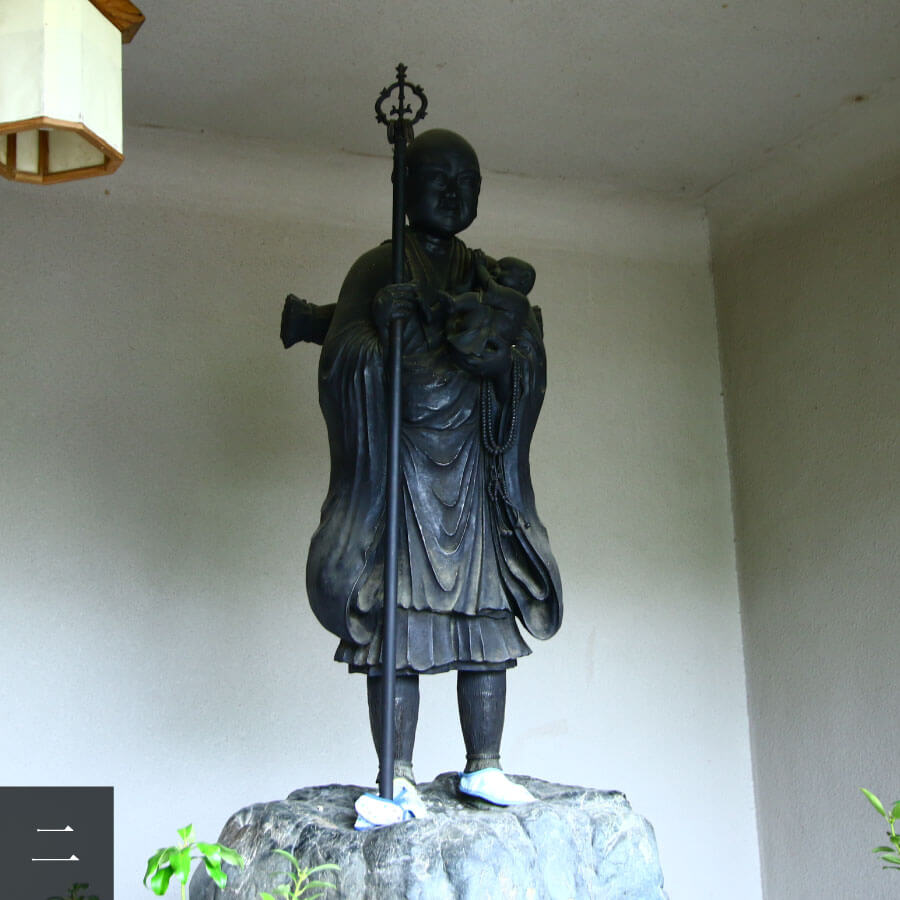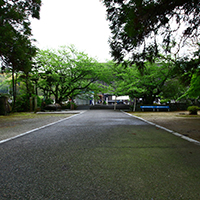【Pilgrim’s Song】
If you think of the later world visit Koonji.
The water of Shirataki that never stops

Established in 1976, 51st year of the Shōwa era. Brown reinforced concrete construction. 16m in height, 1st floor is the large auditorium, 2nd floor is the main hall and Daishido. There are over 620 chair seats in the main hall. * Image 1

On the right side of the temple. A figure of the master with a rolled tatami mat on his back, a priest’s staff in his right hand, and a baby in his left arm. * Image 2
History and origin of Koonji
Koonji is one of the oldest temples in Shikoku, with the opening of Prince Shotoku (574-622). On the other hand, there is an ultra-modern grand temple that serves as the main hall and the Daishi-do temple. The ring of the Koyasu-ko (teachings for smooth child delivery), which was founded by the temple, has spread overseas and currently exceeds 20,000 people.
According to Engi, Emperor Yomei (reigned 585-87) prayed for the healing of illnesses, and Prince Prince Shotoku founded the temple. At this time, it was reported that a white-haired old woman wearing a gold garment flew in front of the prince and enshrined the statue of Dainichi Nihonki. Later, Gyoki Bodhisattva (668-749) visited during the Heian period (729-49).
Kobo Daishi visited during the Daidō era (806-10). One day, a heavy woman suffered in front of the gate. The master held her and prayed with the incense of sandalwood. Then the woman gave birth to a healthy boy. This was the opportunity, and the Daishi put the small gold Dainichi Nyorai statue he brought back from Tang into the chest of deity, and again lit sandalwood incense for safe delivery, child-raising, sacrifice, and praying for the female Buddha and left it in the temple and set it as a sacred place. The name “Sandanyama” (a type of Indian sandalwood) comes from this.
Kobo Daishi visited during the Daidō era (806-10). One day, a heavy woman suffered in front of the gate. The master held her and prayed with the incense of sandalwood. Then the woman gave birth to a healthy boy. This was the opportunity, and the Daishi put the small gold Dainichi Nyorai statue he brought back from Tang into the chest of deity, and again lit sandalwood incense for safe delivery, child-raising, sacrifice, and praying for the female Buddha and left it in the temple and set it as a sacred place. The name “Sandanyama” (a type of Indian sandalwood) comes from this.
The highlights of Koonji
Cathedral, Koyasu Daishi Statue, Koyasu Junior High School (the predecessor of the current prefectural Komatsu High School, a temple was founded in 1950 and was dedicated to school education.)
Annual events at Koonji
- First prayer meeting
- Date: December 31-January 7
- Saintokukai
- Date: February 22
- Flower Festival
- Date: April 8
- fair
- Date: April 20-21
- Sozo’s Birthday Party
- Date: June 15
- Jizo Bonkai
- Date: August 23
- Gokuonkai
- Date: August 24
- Revision meeting
- Date: December 31
- Kobo Daishi Moon Shadow
- Date: 21st of every month
- Okunoin Fudodo Mamoru
- Date: 28th of every month
Temple 61 Fudasho: Sendansan Kyooin Koonji
- Denomination
- Shingon Buddhism Omuro
- Honzon
- Dainichi Nyorai
- Pioneer
- Prince Shotoku
- Founding
- Late 6th century
- Mantra
- On abiraunken bazara datoban
Access
- Location
- Minamigawa ko 19, Komatsu-cho, Saijo, Ehime 799-1102
- Tel
- 0898-72-3861
- Parking
- Available (free)
- 宿坊
- None
- Website
- http://www.koyasudaishi.or.jp/
From Iyo-Komatsu Interchange, take National Route 11 towards Saijo City. Turn right at Koonji Intersection, drive about 370m and turn right.
⇒ Google map

